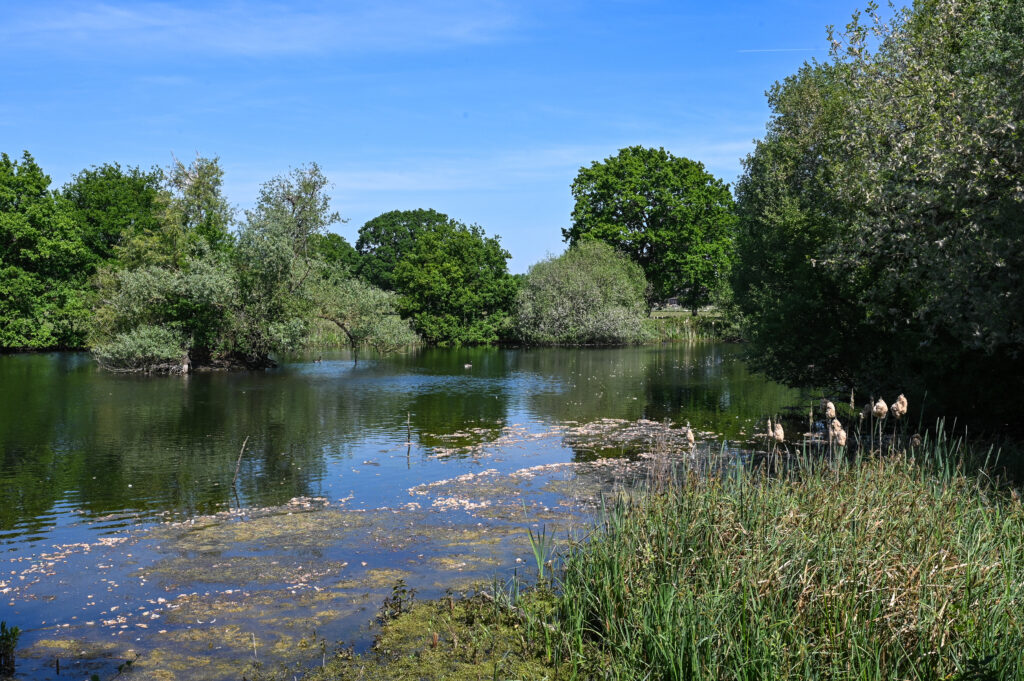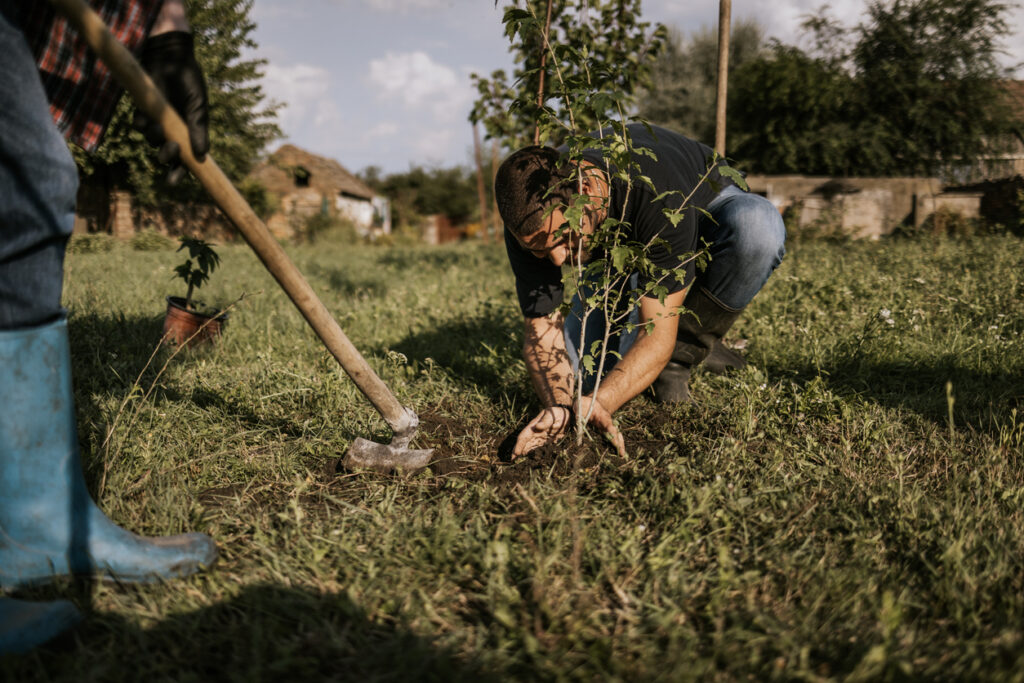
Using a Charity Bank loan as bridging finance
“Going with Charity Bank, who clearly cares about what you’re doing and is invested in your vision, makes a big difference.” Jack Horlick, Finance Director and Carbon Manager at Plant One Cornwall, shares his experience of getting a loan.
Why is there such a need for Plant One Cornwall?
People associate Cornwall with beautiful landscape, but while the coast is lovely, the interior has been stripped bare. It has one of the lowest tree coverages in the whole of the UK, and England is one of the most nature-depleted countries in the whole of Europe.
Back in the day, Cornwall had lots of temperate rainforests – biodiverse habitats that only occur where it’s frequently wet but has quite a mild climate.
Now, like most of the UK, green spaces are mainly given over to farming, so there’s not much space for nature or for people to experience nature. People are starting to care about this, so corporations are starting to care, and the government is providing grants and schemes for forest regeneration. Plant One Cornwall connects landowners to businesses and government grants, so that they can fund the regeneration of forests.
You’re using your Charity Bank loan for bridging finance. Why do you need that?
Landowners can claim for the cost of planting trees on their land through the England Woodland Creation Offering. The problem is, they need to pay for the work upfront and then reclaim it. That’s very off putting for people. The loan from Charity Bank allows us to do the planting and only take payment once the landowner has received their grant.
Are there added benefits for Plant One Cornwall?
It makes our service more preferable to landowners than going it alone, as they don’t need to pay out for the work. We make a small margin on each contract, which is then funnelled back into running the organisation, finding more partners, finding more landowners, paying the salaries of the people who work at the company, and so on. That margin increases the more planting we do, because we get better rates on the trees that we buy. So, the Charity Bank loan is helping us to grow as an organisation.
By working with landowners, we can have conversations about how best to plant, what to plant, whether some areas can be opened up for public access, and so on. So not only is the loan helping to increase the amount of land being planted, it also allows us to positively influence how that land is being planted.
For us, it’s not just about planting trees; it’s about regeneration and the establishment of trees. We monitor all of the sites that we plant for six years to give the trees the chance to really establish themselves. Otherwise, half of them might die, which is what happens with some planting schemes.
Presumably, once you receive the grant money, you can then recycle the loan money to use for another project?
Yes. It means we’ve been able to plant an extra 18,000 trees so far. There’s absolutely no chance that we, as a tiny organisation with no external funding, would possibly have been able to plant those trees without the help from Charity Bank.
Why did you choose Charity Bank for the loan?
I got in touch with a charity that provides free initial consultations about obtaining funding, and they put me in touch with Charity Bank.
I think the nature of the loan would have put some banks off. It’s very hard to find anyone to provide finance if you’re a not-for-profit. Some of the bigger banks had offerings, but we didn’t fit in their boxes. For example, a lot of them are only interested in lending for social impact rather than for environmental impact.
This was Plant One Cornwall’s first large loan. Were you concerned about taking on debt as a CIC?
Not really. I’m a volunteer for Plant One; my day job is Head of Finance, so this is my area of experience. I wasn’t particularly worried about taking on a loan because we’re only using it to finance projects where we’re sure that we’re going to get the funds back.
How did you find the process of applying for the loan?
It was all pretty pleasant. I didn’t find it particularly onerous or think the amount of information that we had to provide was excessive. What I hadn’t experienced before were the questions around why we’re doing what we’re doing, our purpose and mission. But that was all relatively easy to explain.
From a financial perspective, it wasn’t too hard to provide evidence, but that is somewhat linked to the nature of what we’re doing. If we plant X many trees, it’s very easy to predict the payment that we’ll get, because there are set rates by the government. We know the profit we’ll make on it, so we know the amount that we’ll have to repay the loan.
John Murray, who I dealt with quite a lot, was super helpful. He’d jump on a call whenever needed, and take me through anything, and was very good at explaining everything. Being able to go through stuff in person and discuss things, rather than going back and forth over emails or having to wait for a reply, was really helpful. Actually, everyone who was involved in the loan, from start to finish, was lovely to work with.
When you’re dealing with an organisation whose very purpose is to do something positive, it’s a different experience than applying for a loan from a big bank. With Charity Bank, it felt like they actually cared about what we’re doing, rather than just seeing us as another customer to make some interest off.
John and Danny [Wilson-Dodd] were both super encouraging – “We’d love to make this work”, all of that. That support and feeling like the other side of the relationship is invested in making it succeed, really makes a big difference.
I believe you received a grant from the Reach Fund?
Yes, that was an unexpected bonus. The Reach Fund meant that I could take some time off from my normal contract to do the loan application, rather than having to spend my evenings doing paperwork, forecasts and things like that.
For organisations that don’t have anyone with a financial background, I think the Reach Fund would be really useful. It could otherwise be quite daunting to review documents on your own.
Would you recommend that other Community Interest Companys consider Charity Bank?
Yes, 100%. The relationship with Charity Bank has meant that we’ve been able to do so much more than we otherwise could have done. It’s not just the fact that we’ve planted more trees, it’s the fact that we were able to hire more contractors locally and train them up, and hold more partner days with our corporate partners.
Going with someone like Charity Bank, who clearly cares about what you’re doing and is invested in your vision, makes a big difference.
If you need a loan for your CIC, please contact Charity Bank at [email protected].
About Charity Bank
Charity Bank is the loans and savings bank owned by and committed to supporting the social sector. Since 2002, we have used our savers’ money to make more than 1380 loans totalling over £580m to housing, education, social care, community and other social purpose organisations.
Nothing in this article constitutes an invitation to engage in investment activity nor is it advice or a recommendation and professional advice should be taken before any course of action is pursued.


